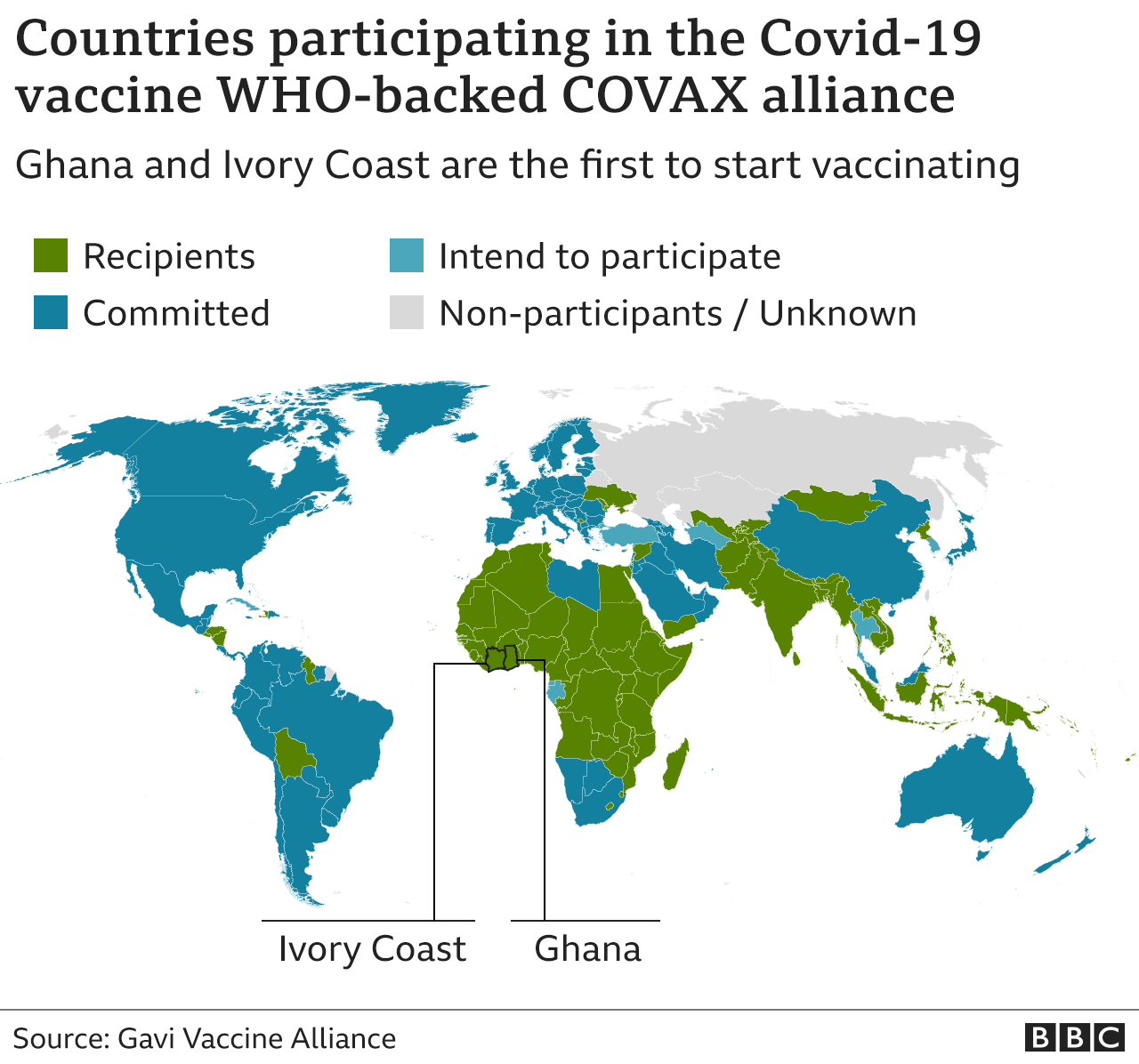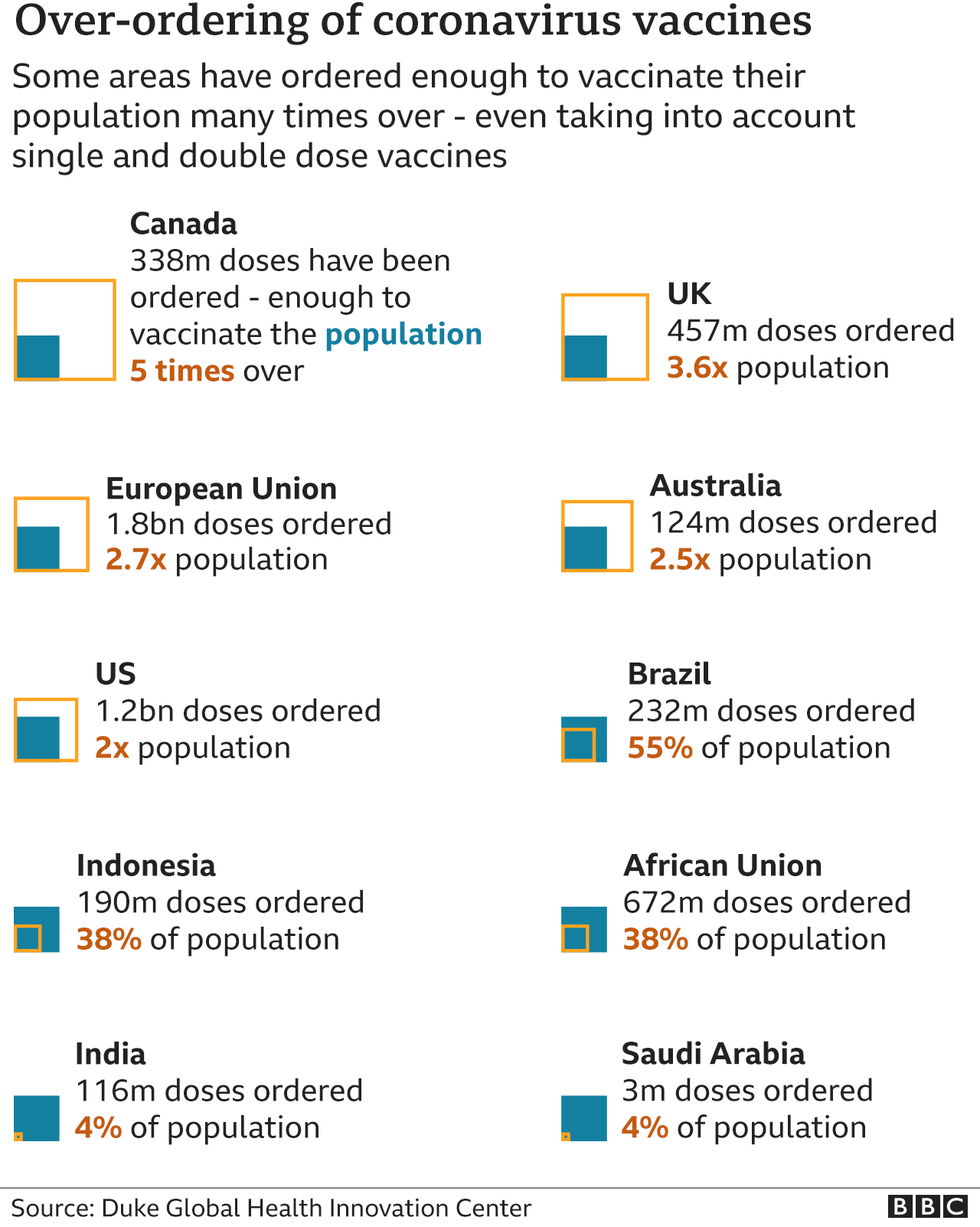Covid: WHO scheme Covax delivers first vaccines
 image copyrightUnicef Ghana
image copyrightUnicef GhanaGhana has become the first country to receive coronavirus vaccines through the Covax vaccine-sharing initiative.
The World Health Organization (WHO) programme aims to ensure that vaccines are shared fairly among all nations.
Covax is aiming to deliver about two billion doses of Covid-19 vaccines globally by the end of the year.
Many rich nations, who began their own vaccinations months ago, have faced criticism for buying or ordering more vaccines than they need.
A total of 600,000 doses of the vaccine developed by AstraZeneca and Oxford University and produced by the Serum Institute of India arrived in Ghana's capital Accra on Wednesday.
Vaccinations are expected to start there next week, with prioritised groups such as health workers, people over 60, people with underlying health conditions, and senior officials.
In a joint statement, the WHO and the United Nations children's fund (Unicef) said it was a momentous occasion and "critical in bringing the pandemic to an end".
The West African country - with a population of 30 million - has recorded more than 80,700 cases of coronavirus and 580 deaths since the pandemic began. These numbers are believed to fall short of the actual toll because of low levels of testing.
Though the vaccines are not generally intended for children, Unicef is involved in the scheme because of its expertise in procurement and the logistics of vaccine delivery.
It told the BBC that Ghana was one of the countries selected to receive the first batch of vaccine doses "as it met the conditions precedent for receiving the vaccine".
What is Covax?
So far, richer countries have been able to buy far more Covid jabs than poorer ones.


The Covax scheme was set up by the WHO, the Gavi vaccines alliance and the Coalition for Epidemic Preparedness Innovations (CEPI) to try to prevent poorer countries from being pushed to the back of the queue.
The programme is designed so that richer countries buying vaccines agree to help finance access for poorer nations, too.
It hopes to deliver more than two billion doses to people in 190 countries in less than a year. In particular, it wants to ensure 92 poorer countries will receive access to vaccines at the same time as 98 wealthier countries.
It aims to reach up to 20% of the populations of poorer countries, at no cost to their governments.
Most African countries are intended recipients of Covax, but a number of them like Senegal have been making provisions for vaccines outside the initiative.
The scheme has so far raised $6bn (£4.3bn), but says it needs at least another $2bn to meet its target for 2021.
Covax has faced some criticism for not moving quickly enough. One WHO board member, Austria's Dr Clemens Martin Auer, said it had been slow to secure vaccine deals and deliver doses.
The joint statement on Wednesday said the shipment to Ghana represented "the beginning of what should be the largest vaccine procurement and supply operation in history".




No comments